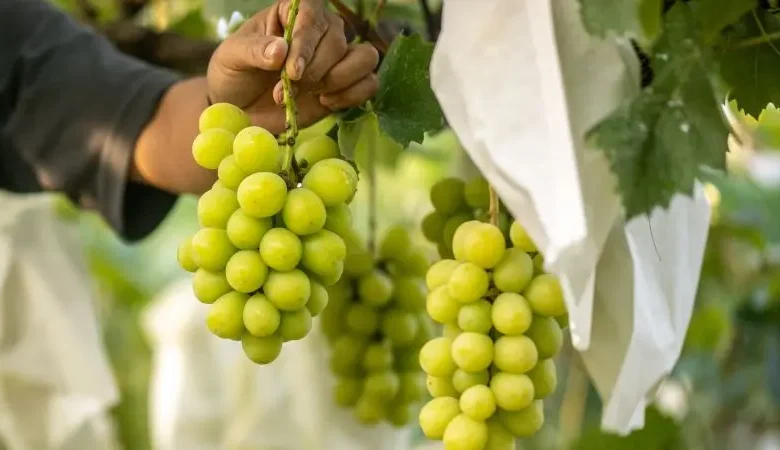Japan battles to protect premium grapes from being stolen

The prized Shine Muscat grapes, a culmination of 33 years of scientific research, are causing a stir in Japan’s agricultural community.
Developed by Yuki Nakamura, these juicy green grapes can fetch as much as $100 per bunch in Tokyo department stores. However, the sweet success of Shine Muscat has been dampened by the unauthorized cultivation of similar varieties by China and South Korea.
Nakamura, a dedicated farmer in Nagano, Japan, considers the grapes to be his “partner” and hopes to export them to countries like Hong Kong and Thailand where Japanese fruits have gained popularity. Unfortunately, these overseas markets are already flooded with cheap imitations grown in neighboring countries.
Japan battles to protect premium grapes from being stolen

China and South Korea took seedlings of Shine Muscat out of Japan and grafted them onto local vines to produce look-alike fruit at a fraction of the cost. While customers may be enticed by the lower price point, they often find that these copycats lack the unique qualities and flavors found in the authentic Shine Muscat grapes.
Surprisingly, Japan failed to register the variety overseas within the required six-year timeframe, leaving them powerless to prevent unauthorized cultivation.
Even South Korea’s agriculture ministry confirmed that the current situation allows cultivation and distribution of Shine Muscat grapes in their country without royalty obligations. China has not responded to requests for comments on the matter.
Japan’s inability to export grapes to China due to stringent quarantine rules means that Chinese growers are technically not cannibalizing Japanese sales. However, had Tokyo obtained the necessary rights, it was estimated that licensing fees from China alone would amount to over 10 billion yen ($69 million) annually.
Unfortunately, Shine Muscat is not the only fruit variety facing this issue. Japan also overlooked registering new strawberry, cherry, and citrus varieties that have now appeared in China, South Korea, and Australia.

The development of new fruit varieties has been ongoing since the 1920s when researchers at NARO conducted extensive studies to create improved selections. Recently, scientists were observed harvesting various pear varieties, evaluating their sweetness, firmness, and taste using specialized equipment and occasional bites.
To combat fraudulent copycats, NARO has implemented DNA analysis to identify genuine varieties. By comparing grape genomes, unique sequences specific to Shine Muscat can be identified, determining the authenticity of the fruit.
Japan has reacted to these challenges by strengthening legislation in 2020 to prohibit the export of registered seeds and seedlings. Violators can face hefty fines and even imprisonment. Additionally, Japan strives to provide better protection for domestic growers against foreign imitations.
While Nakamura is delighted that Shine Muscats has gained recognition throughout Asia, he remains disheartened by the ease at which Japan’s hard work can be appropriated and sold overseas.










